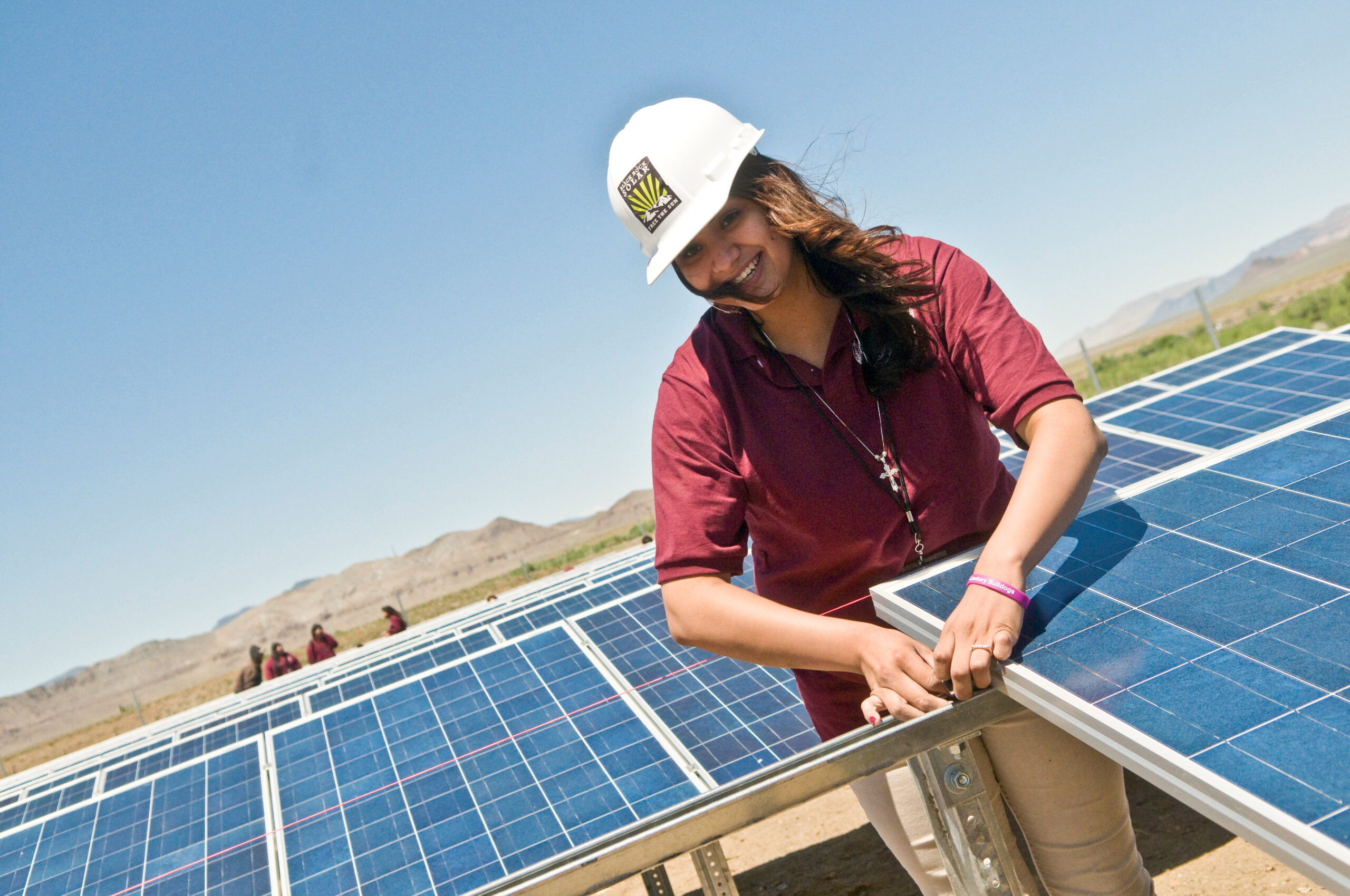The Future of Renewable Energy: How Solar Power is Revolutionizing America – In recent years, the world has been making significant strides towards a greener and more sustainable future. One of the key players in this movement is solar power. The United States, in particular, has witnessed a remarkable revolution in the field of renewable energy, with solar power at the forefront of this transformation. In this article, we will delve into the future of renewable energy, focusing on how solar power is revolutionizing America.
Harnessing the Power of the Sun: A Renewable Revolution
The Rising Demand for Renewable Energy
The first step in understanding the future of renewable energy is recognizing the ever-increasing demand for clean and sustainable power sources. As concerns about climate change and environmental degradation escalate, more Americans are looking to transition from fossil fuels to cleaner alternatives.
Solar Energy: A Shining Star
Among these alternatives, solar energy stands out. Solar panels, often installed on rooftops and in vast solar farms, capture sunlight and convert it into electricity. This process, known as photovoltaics, has gained immense popularity due to its environmental benefits and cost-effectiveness.
Government Incentives
One of the driving forces behind the solar power revolution in America is the support of the government. Federal and state incentives, such as tax credits and rebates, have made solar panel installations more affordable for homeowners and businesses. This has encouraged a widespread adoption of solar technology.
Technological Advancements
The solar industry has seen remarkable technological advancements in recent years. The efficiency of solar panels has improved significantly, making them more productive and cost-efficient. Moreover, energy storage solutions like solar batteries have emerged, allowing households to store excess energy for later use.
Transforming Energy Infrastructure: Solar’s Impact on America
Grid Integration
As solar power capacity continues to grow, integrating this energy source into the existing electrical grid has become crucial. Smart grid technologies are being developed to efficiently manage and distribute solar-generated electricity across the nation.
Energy Accessibility
Solar power has the potential to increase energy accessibility in remote and underserved areas. By harnessing the sun’s energy, even off-grid communities can have a reliable source of electricity, reducing their dependence on fossil fuels.
Job Creation
The solar industry has become a major employer in the United States. The installation, maintenance, and manufacturing of solar technology have created numerous jobs, stimulating economic growth in various regions.
Environmental Benefits and Challenges
Reduced Carbon Footprint
One of the most significant advantages of solar power is its contribution to reducing carbon emissions. By generating electricity without burning fossil fuels, solar energy plays a vital role in mitigating climate change.
Challenges in Storage and Efficiency
While solar power offers immense potential, it faces challenges related to energy storage and efficiency during periods of low sunlight. Innovations in battery technology and grid management are essential to overcome these hurdles.
Conclusion
In conclusion, the future of renewable energy in America looks promising, with solar power leading the way. The increasing demand for clean energy, government support, and technological advancements have catapulted solar energy into the spotlight. As we move forward, integrating solar power into our energy infrastructure will be key to realizing a sustainable and eco-friendly future.
Frequently Asked Questions (FAQs)
- Is solar power a reliable source of energy?
- Yes, solar power is reliable, especially in regions with abundant sunlight. With proper energy storage solutions, it can provide consistent electricity even during cloudy days.
- What are the environmental benefits of solar power?
- Solar power reduces carbon emissions, helps combat climate change, and decreases our reliance on fossil fuels, which are major contributors to air pollution.
- How can I benefit from solar power as a homeowner?
- As a homeowner, you can benefit from solar power by reducing your electricity bills, increasing the value of your property, and contributing to a cleaner environment.
- Are there any government incentives for installing solar panels?
- Yes, there are federal and state incentives, such as tax credits and rebates, that can significantly reduce the cost of installing solar panels.
- What is the lifespan of solar panels?
- Solar panels typically have a lifespan of 25 to 30 years, during which they continue to generate electricity efficiently.




